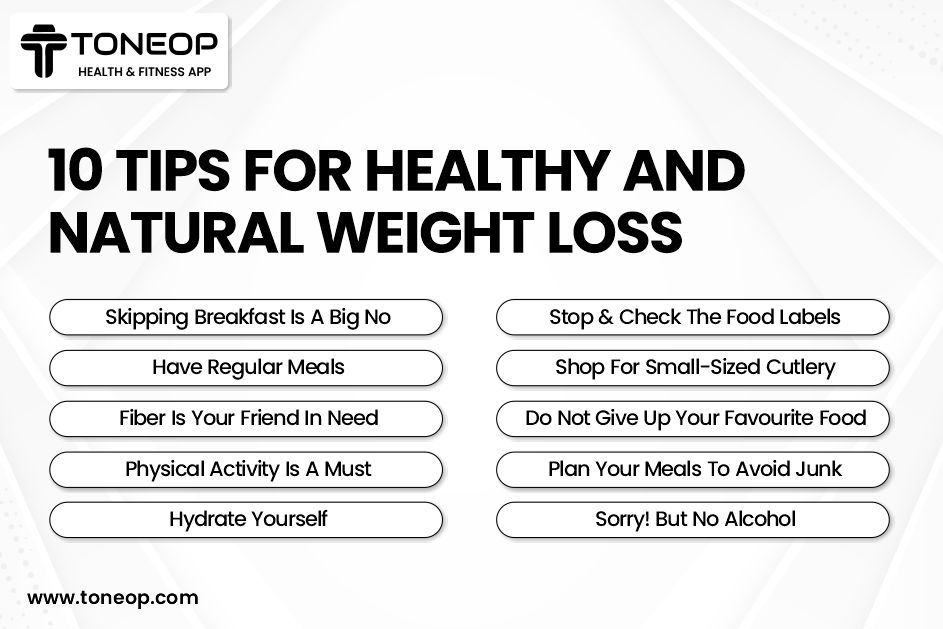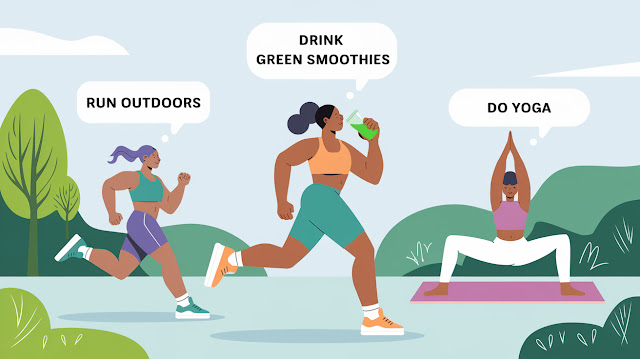The increasingly hectic pace of life and the myriad of ways to avoid physical exertion for the sake of convenience have resulted in a sedentary lifestyle. Nowadays, weight gain is more often a lifestyle issue rather than a consequence of a serious illness.
Shedding those extra pounds has become particularly challenging for those who have little interest in or no time for exercise. Nevertheless, there are other effective, natural, and quick methods for losing weight, such as making adjustments to your diet. This involves transitioning from unhealthy fast food to meticulously planned, home-cooked meals.
As everyone’s body responds and functions differently, diet plans aimed at quick and sustainable weight loss should be tailored to meet the individual needs of each person.
These days, excess weight is a common topic of conversation. Whether it’s obesity or excess fat around areas like the belly, arms, thighs, or hips, many people are striving to get into shape. However, unplanned and erratic weight loss efforts may offer only temporary and unsustainable results.
Here are some strategies to enhance the effectiveness of your weight loss program.

1. Skipping Breakfast Is Not Advisable
Breakfast is the first meal and an important start to a new day. A nutritious breakfast keeps you energized throughout the day and provides essential nutrients, which also helps prevent unhealthy snacking later on.
2. Eat Regular Meals
Consistently eating at regular intervals is crucial for boosting and maintaining your basal metabolic rate (BMR), which is the number of calories your body needs to perform its basic life-sustaining functions. Regular meals assist in burning calories more efficiently and reduce cravings for high-calorie foods.
3. High-Fiber Foods Are Beneficial
Fruits and vegetables are excellent sources of high fiber and vitamins. They are very satisfying and keep the body energized with an appropriate calorie balance.
4. Physical Activity Is Essential
Staying physically active doesn’t necessarily mean engaging in rigorous physical exercise.
Any kind of physical exercise combined with everyday activities such as gardening or household tasks like cleaning can help burn additional calories.
5. Maintain Proper Hydration
Just as breathing is vital, keeping your body hydrated is equally crucial. To ensure your body functions optimally and eliminates toxins efficiently, it is necessary to drink plenty of water and other nutritious beverages throughout the day.
6. Examine Food Labels
Beyond just flavors and expiration dates, cultivate the habit of reading nutritional information on food labels when purchasing packaged products. Opt for items that fit within your daily calorie limit. This practice helps you make healthier choices and also gives you insight into the market's selling tactics.
7. Use Smaller Dinnerware
Consider replacing your large bowls and plates with smaller ones. Psychologically, we tend to fill our plates entirely. Using smaller dishes can reduce meal sizes while still giving the impression of a full portion. This will help you gradually adjust to smaller portions to maintain your weight. Additionally, it takes about 20 minutes for your stomach to signal to the brain that it's full, so eating slowly can help reduce food intake.
8. Don't Give Up Your Favorite Foods
In a rush to lose weight, people often cut out specific foods entirely, leading to increased cravings. Instead, practice moderation and try to find healthier alternatives to your favorite foods.
9. Plan Your Meals to Avoid Junk Food
The importance of avoiding unhealthy junk food such as sodas, biscuits, and chocolates cannot be overstated. During your next supermarket visit, follow your diet plan and consciously choose healthier snacks like fruits, salads, oat cakes, makhana, popcorn, and sprouts.
10. Avoid Alcohol
This might be hard to hear, but alcohol can contribute to weight gain. Consuming alcohol during a diet can significantly obstruct your weight loss efforts.
FAQ
1. How can I achieve rapid weight loss?
To lose weight quickly, you can modify your eating habits by incorporating plenty of vegetables along with healthy fats, high-protein foods, and fiber-rich nutrients which help you feel full longer, reducing unhealthy snacking.
2. What can I do to reduce belly fat in a week?
You can reduce belly fat by engaging in regular aerobic exercises, cycling, jogging, or abdominal workouts, combined with a diet high in protein, carbohydrates, fiber, and healthy fats. Make sure to stay hydrated and avoid unhealthy beverages.
3. Is there a specific diet that works best for women?
There is no particular diet that works better for women compared to men. Healthy eating habits are universally beneficial.
Typically, the Mediterranean diet is a well-rounded eating plan beneficial for weight loss for all genders.
4. Is it safe to use extreme weight loss methods?
The safety of using extreme weight loss methods varies based on an individual's medical condition. For instance, a person with insulin resistance or a woman with PCOD might utilize a low-carb diet, whereas someone with diabetes or hypertension should avoid such a diet.
5. How can I lose weight at home?
Weight loss at home can be achieved by making notable dietary adjustments, such as increasing the intake of vegetables and whole fruits, consuming proteins like legumes, chicken, poultry, and eggs, as well as whole grains like wheat and rice. Additionally, it is important to steer clear of sugary foods, drink plenty of water, and engage in at least 30-40 minutes of physical exercise daily.
